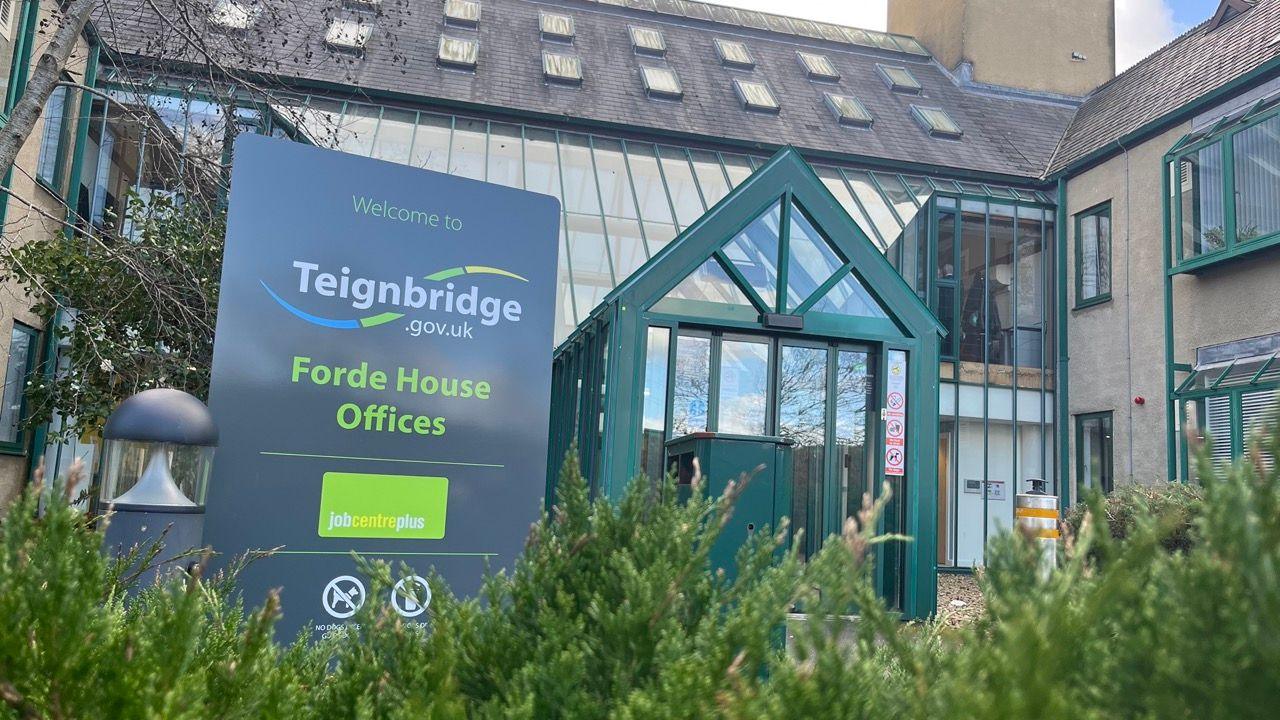Council is 'acting lawfully on single-sex spaces'
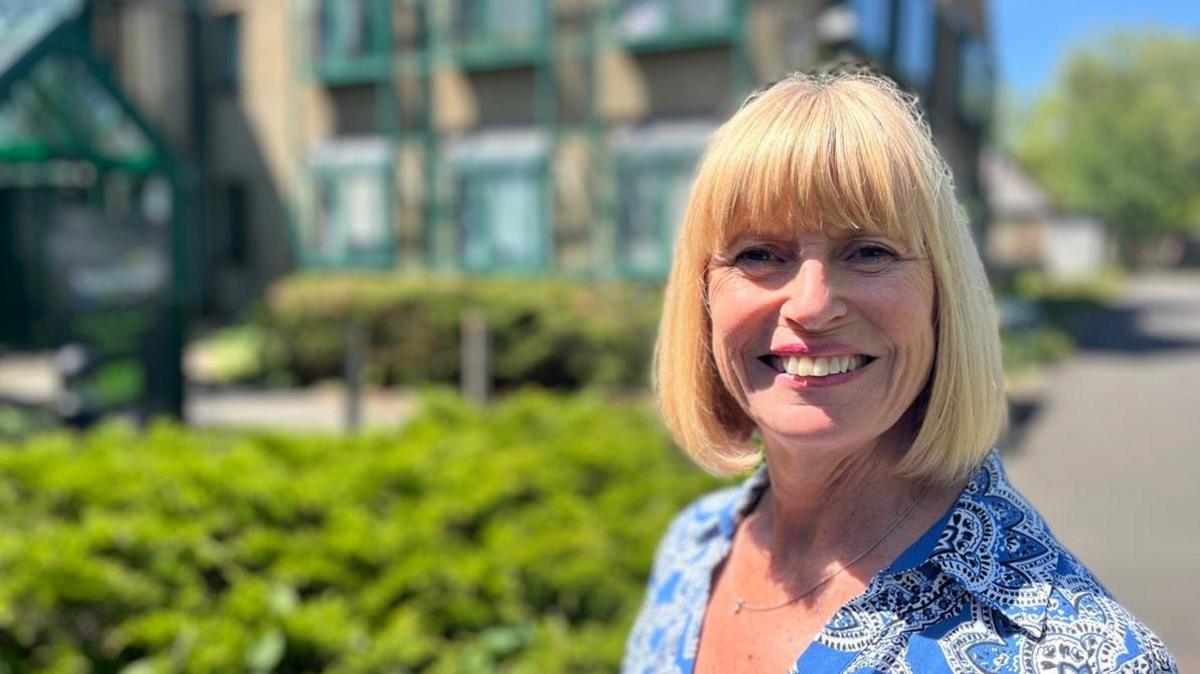
Councillor and retired police chief inspector Jane Taylor asked for a full review of the council's policy
- Published
A council has clarified its position over single-sex spaces in the wake of the Supreme Court judgment which ruled a woman is defined by biological sex under equalities law.
Independent councillor Jane Taylor said Teignbridge District Council had continued to "deny women single-sex spaces" and asked for a full review of the council's equality and diversity policy to clarify exactly what was meant by a single-sex space.
The council hired a barrister to produce a 26-page report to advise it on what it should do next.
The report said the authority was acting lawfully in line with the judgment and there was no need for a review of council policy.
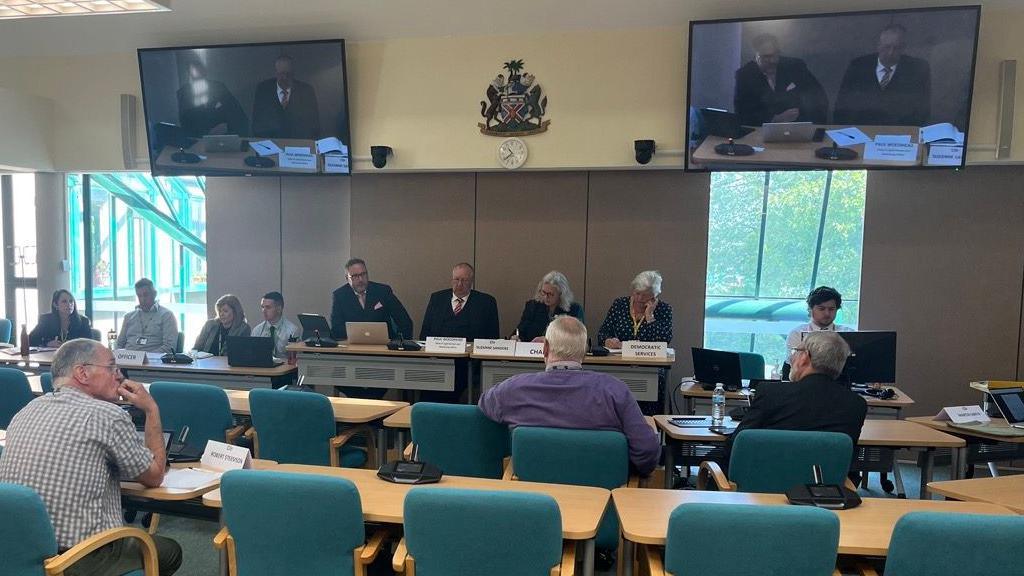
Paul Woodhead, second from left on the raised table, is the head of legal services at Teignbridge District Council
Taylor, a retired police chief inspector, put forward a motion in October 2024 which said: "This council cannot continue to ignore and sideline the centrality of sex as a key factor of discrimination and deny women single-sex spaces where they are necessary, proportionate and legitimate to the objectives of upholding their safety and dignity."
She called on Teignbridge to "agree a definition of single-sex spaces, for males and females, owned or managed by Teignbridge District Council and any appropriate service provision".
At the meeting on Monday, she said: "Does this council still believe it is unlawful to exclude men who self-identify as women or who possess a gender recognition certificate to enter advertised single-sex female spaces."
A transgender woman is a person born male who lives as a female.
Paul Woodhead, head of legal services at the council, said: "The Supreme Court made it quite clear what the position is and we will not deviate from what that position is."
The Equality and Human Rights Commission issued guidance following the Supreme Court ruling, external which said in services that are open to the public "trans women (biological men) should not be permitted to use the women's facilities and trans men (biological women) should not be permitted to use the men's facilities, as this will mean that they are no longer single-sex facilities and must be open to all users of the opposite sex".
Speaking after the meeting, Taylor said she was "elated" that women could now use single-sex spaces in Teignbridge District Council properties, such as changing rooms, in full knowledge that only other biological women would use that space.
'Immediately apparent tension'
In the report prepared by Jonathan Ward of Magdalen Chambers in Exeter, he said the issue related specifically to single-sex spaces at the Broadmeadow Leisure Centre in Teignmouth.
He said this was "a divisive issue" and that there was "tension between the protections for the protected characteristic of sex, and the protected characteristic of gender reassignment".
In his report, he said there was "an immediately apparent tension" in cases where "a woman complains that she feels unsafe for example in sharing a changing room with a transgender woman" but "that a transgender woman feels unsafe if required to share a changing room with other men".
During the meeting, Ward said "village" facilities where there were individual cubicles with locks appeared to be "a sensible answer".
He said it was "difficult to see the process for enforcing single-sex spaces" and that questioning of individuals could amount to "victimisation and harassment".
The BBC has asked Teignbridge District Council what the cost was of the barrister's report but has not received an answer.
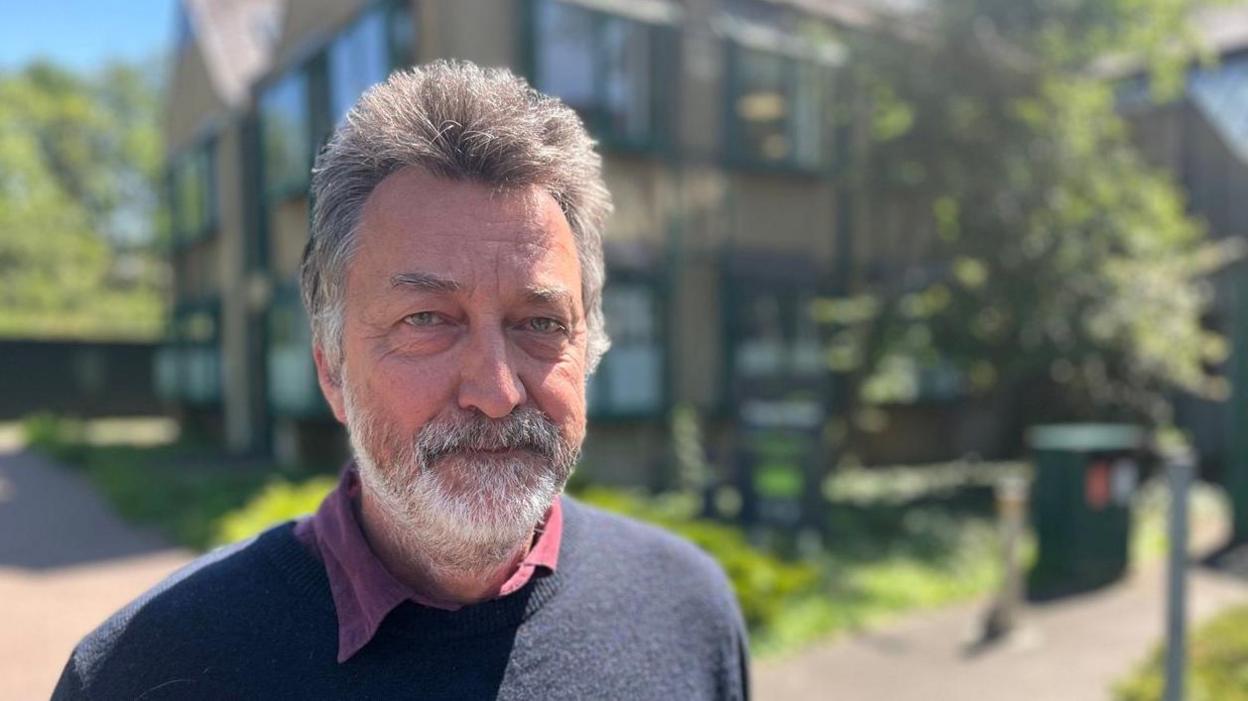
Andrew Swain said he was pleased with the outcome
Following the meeting, council Liberal Democrat member Andrew Swain said he was pleased with the outcome.
He said: "We looked at it in detail. We've taken legal advice, and the conclusions there pretty much agree with my feeling that what Teignbridge is doing is really good.
"Teignbridge has been redesigning the leisure centres - they're moving towards individual lockable cubicles and, for me, this is a better way of working.
Swain said some people had "tried to make this into a battle".
He said: "I don't think it's a battle - it's about creating leisure centres and public facilities which are inclusive."
Follow BBC Devon on X, external, Facebook, external and Instagram, external. Send your story ideas to spotlight@bbc.co.uk, external.
Related topics
Related stories
- Published16 April
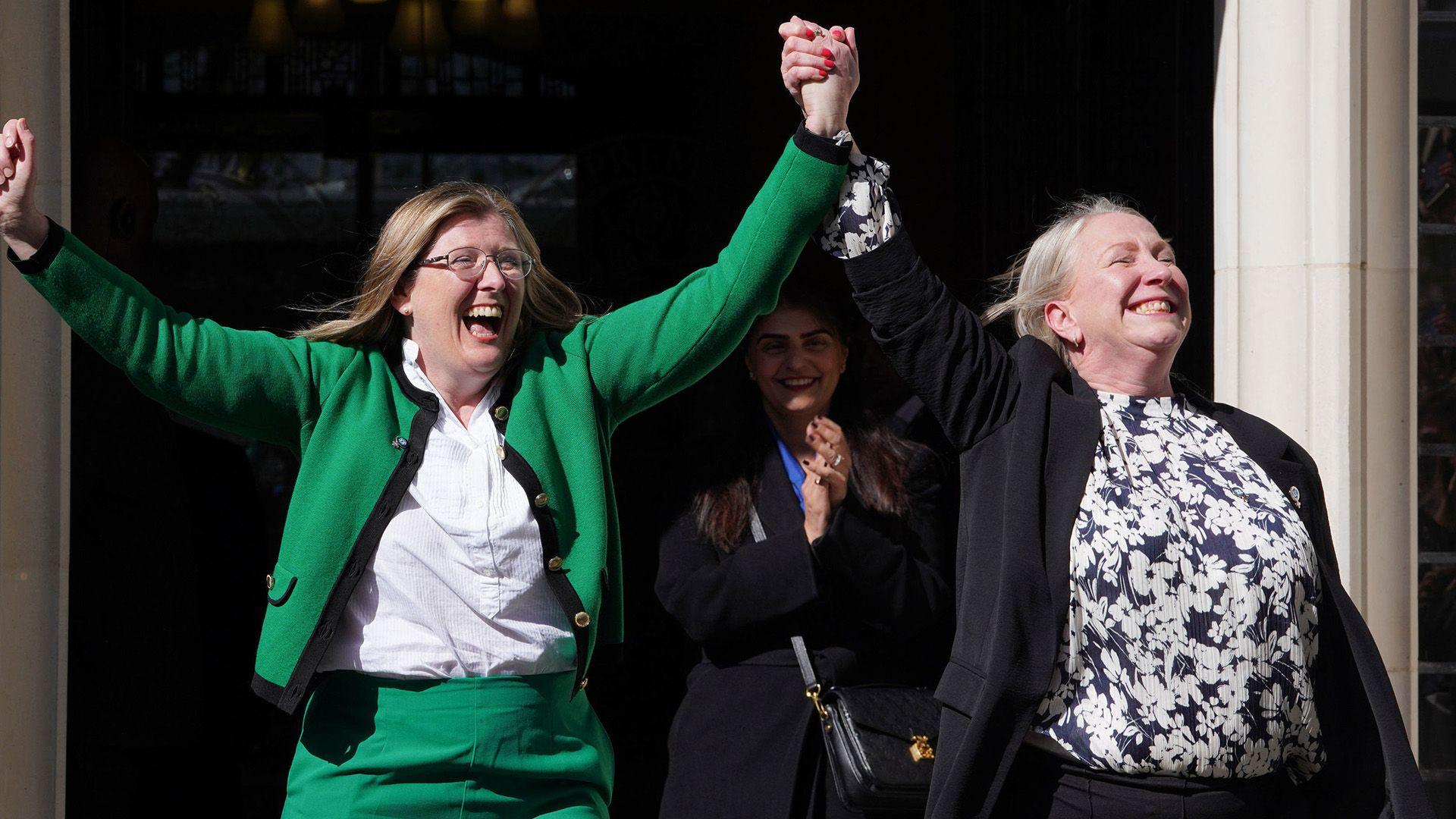
- Published25 February
